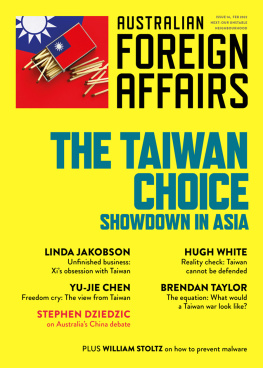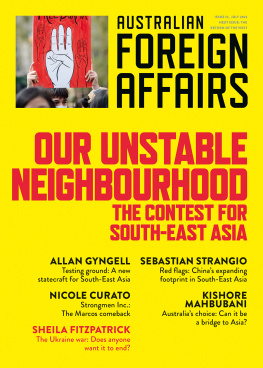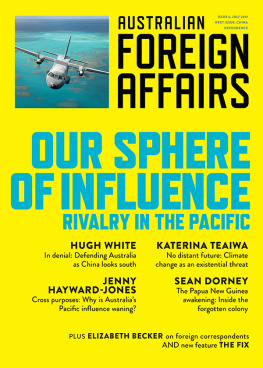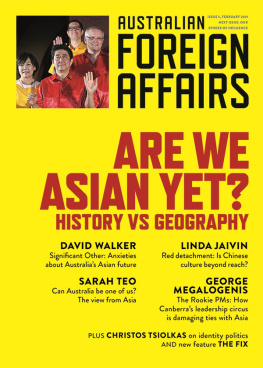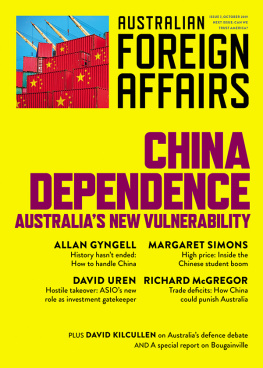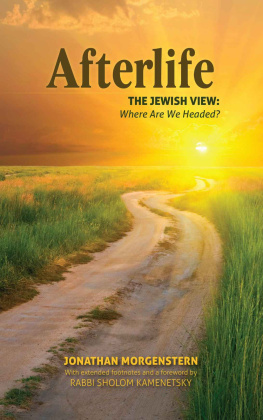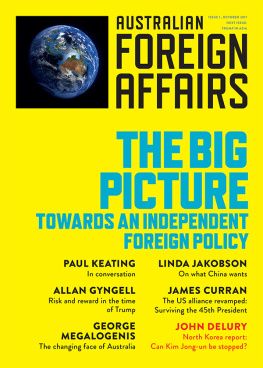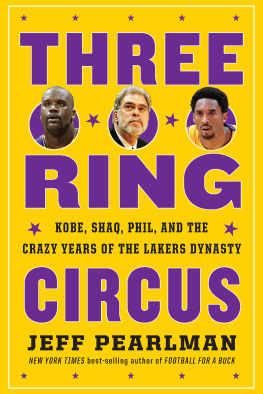Issue 244, May 2021
THE JEWISH QUARTERLY
Contributors
Benjamin Balint is a writer living in Jerusalem. His latest book is Kafkas Last Trial.
Ian Black is a visiting senior fellow at the Middle East Centre of the London School of Economics. His latest book is Enemies and Neighbours.
Sean Gasper Bye is a translator of Polish literature, most recently Ellis Island by Magorzata Szejnert. He lives in Philadelphia.
Holly Case teaches history at Brown University. Her latest book is The Age of Questions.
Hadley Freeman is a columnist and writer for The Guardian. Her latest book is House of Glass.
Mikoaj Grynberg is a Polish photographer and writer who documents the generations of Polish Jews since the Holocaust.
David Herman is a writer based in London. He produced three BBC programmes with Isaiah Berlin and has written about him extensively.
Deborah E. Lipstadt is the Dorot Professor of Modern Jewish History and Holocaust Studies at Emory University.
Robert Manne is an emeritus professor of politics and vice-chancellors fellow at La Trobe University.
Elliot Perlman is an author based in Melbourne. His work includes The Street Sweeper and, most recently, Maybe the Horse Will Talk.
Sir Simon Schama is an author and broadcaster and a professor of art history and history at Columbia University.
The Jewish Quarterly is published four times a year by The Jewish Quarterly Pty Ltd. Publisher: Morry Schwartz. ISBN 9781922517036 E-ISBN 9781743821893 ISSN 0449-010X E-ISSN 2326-2516. ALL RIGHTS RESERVED. No part of this publication may be reproduced, stored in a retrieval system or transmitted in any form by any means electronic, mechanical, photocopying, recording or otherwise without the prior consent of the publishers. Essays, reviews and correspondence retained by the authors. Excerpt on pp. 3132 is from Mikoaj Grynberg, Ksiga wyjcia, Wydawnictwo Czarne, Woowiec, 2018, p. 53. Postcard on p. 68 appears by permission of the Manuscripts and Archives Division, the New York Public Library, Astor, Lenox and Tilden Foundations. Subscriptions 1 year print & digital (4 issues): 42 GBP | $56 USD. 1 year digital only: 25 GBP | $32 USD. Payment may be made by Mastercard or Visa. Payment includes postage and handling. Subscribe online at . Editor: Jonathan Pearlman. Associate Editor: Jo Rosenberg. Literary Editor: Natasha Lehrer. Contributing Editors: Ian Black and Jo Glanville. Publicity: Pitch Projects. Sales and Marketing Manager: Caraline Douglas. Management: Elisabeth Young. Marketing and Editorial Assistant: Michelle Wenig. Design: John Warwicker and Tristan Main. Production: Marilyn de Castro. Typesetting: Tristan Main.
Editors note
In 1953, Joseph Sonntag opened the first issue of The Jewish Quarterly with the following declaration of intent: At no time was there a greater need for clear thinking and searching analysis as to where we stand in the world today as Jews, as citizens, and as ordinary human beings.
Sonntag, this publications founding editor, was writing at a tumultuous moment. Less than a decade earlier, World War II had ended, as had the tragedy of European Jewry (not yet known, ubiquitously, as the Holocaust), and Israel was just five years old. The world and its boundaries, Sonntag observed, were changing at a seemingly unimaginable pace, and this was presenting questions about politics, history, community and culture that could not be answered through simple slogans or unthinking assertions of belief. Patterns of the past, he wrote, no longer fit into the framework of the present.
This relaunch issue of The Jewish Quarterly marks a new stage for the publication it will be available globally and will be globally focused. But the challenge outlined by Sonntag remains. The world is changing fast and not always in ways that favour progress, understanding and justice. Conspiracy theories thrive; governments are banning and rewriting histories; a protester stormed the Capitol in Washington wearing a sweatshirt saying Camp Auschwitz. Nativism has been rising, fuelling the ascendancy of leaders who reach for readymade fixes to complex problems, who gloss over inconvenient realities and who state their cases through slogans, tweets and soundbites.
So there remains a need for clear thinking and searching analysis. The aim in these pages, as Sonntag insisted, will not be to offer polemics or quick retorts, or to invite readers into echo chambers. It will be to provide a platform for writers and thinkers who will expose falsehoods, explore culture, enlarge horizons and like Talmudic scholars deliberating until dawn be part of a dialogue, a collective discussion, in which their insight or critique is intended to add to a continuing inquiry, rather than mark the final word.
Jonathan Pearlman
Viral prejudice and the Jews
Simon Schama
In the dog days of summer 2020, much of the northern hemisphere fondly imagined that the plague had receded; enough, at any rate, to allow for the resumption of time-honoured habits: holidays in the sun and routine exercises in military confrontation. On 12 August, the two activities came within hailing distance of each other off the coast of south-west Anatolia. Tourists on a venturesome Sunfish could have spotted what one party called a mini collision, when the bow of a Greek frigate struck the stern of a Turkish frigate, opening a two-metre gash in its hull above the waterline. The two NATO allies exchanged complaints and threats. For a few weeks there was the possibility of actual hostilities.
Oil was the problem, along with natural gas. Over the past decade, exploratory probes have revealed substantial deposits of both fossil fuels in the seabed of the eastern Mediterranean. Undeterred by a dim economic future for those energy resources, the littoral states Libya, Egypt, Israel, Lebanon, Syria, Cyprus, Turkey and Greece have all carved out shares in Exclusive Economic Zones stretching from their respective coasts. But Greece and Turkey have differed furiously over their boundaries. Arguing that islands can establish maritime rights as legitimately as a mainland coastline, Greece has used Kastellorizo (population 492 in 2011) to claim a gas-rich field that is within swimming range of Kas, Kalkan and Antalya on the Turkish shore.
But the Greco-Turkish conflict over drilling rights is not just a competition in maritime mercantilism. Inevitably, it draws poisoned nourishment from ancient hostilities, dating back through Ottoman history and much earlier. For at least two centuries, Greek and Turkish histories have been perennially locked together in antagonistic mutual self-definition. Jubilantly reporting on the collision at sea, the drum-beating wing of the Greek press made sure to mention that their newly minted hero, the commander of the Greek frigate Limnos, Lieutenant Ioannis Saliaris, hailed from Salamis where, two and a half millennia earlier, an outnumbered Greek fleet had defeated an oriental (Persian, not Turkish) fleet, thus, at least in romantic memory, preserving Christian Europe from the barbarism of Asiatic despotism. Conversely, the Turkish frigate, which had been escorting a survey vessel, was named Kamal Reis, after an Ottoman privateer and admiral whose exploits in the late fifteenth and early sixteenth centuries had sunk European shipping from the western Mediterranean to the Levant.
Retro politics, sharpened by retro energy extraction, persists, obstinately and angrily facing backwards even as the oncoming fury of the future waves of viral pandemics, catastrophic degradation of sustainable ecosystems slams into conventional norms of growth-driven power. But while Greece and Turkey were embroiled in their zero-sum battle for maritime spoils, a Greco-American was busy saving the world through his partnership with two German Turks. In late July 2020, the American pharmaceutical company Pfizer, in collaboration with the German company BioNTech, founded by the husband-and-wife scientific team Uur ahin and zlem Treci, began the phase 3 clinical trials which would result, four months later, in the announcement of the first Covid-19 vaccine ready for manufacture and distribution. Pfizers CEO is Albert Bourla, born and educated in the Thracian metropolis of Thessaloniki (erstwhile Salonica), while his two Turkish collaborators both come from families who immigrated to Germany. Uur ahin was born in the western Anatolian town of Iskenderun (Byzantine Alexandretta), moving to Cologne in 1969 at the age of four when his father became a


